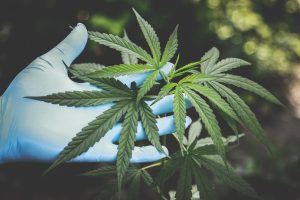Acne is a common skin condition affecting millions worldwide, particularly teenagers and young adults. While acne itself can be frustrating and painful, the scars it leaves behind can have a lasting impact on one’s appearance and self-esteem.
Additionally, acne scars remind us of past breakouts and can be challenging to treat. They occur when the skin’s natural healing process is disrupted, often due to severe inflammation or picking at acne lesions.
The emotional toll of acne scars can be significant. Many individuals experience decreased confidence, social anxiety, and even depression as a result of their skin’s appearance. However, it’s important to remember that acne scars are treatable, and numerous prevention strategies and treatment options are available.
This article will explore the types of acne scars, prevention methods, treatments, online options like e-Surgery and lifestyle factors that can help you achieve clearer, smoother skin.
Types of Acne Scars
Acne scars manifest in various forms, each presenting unique challenges and requiring specific treatment approaches. Here are the different types of acne scars:
- Ice pick scars: Deep, narrow scars that appear as small, round holes in the skin.
- Boxcar scars: Wide, depressed scars with sharp edges, often found on the cheeks.
- Rolling scars: Broad depressions with sloping edges, giving the skin a wavy appearance.
- Hypertrophic scars: Raised, thickened scars that remain within the original acne site.
- Keloid scars: Similar to hypertrophic scars but extend beyond the original acne site.
- Post-inflammatory hyperpigmentation: Dark spots left behind after acne heals are more common in individuals with darker skin tones.
It’s important to consult with a dermatologist or skincare professional who can accurately assess your scar types and recommend an appropriate treatment plan.
Remember that patience is key in treating acne scars, as most treatments require multiple sessions and several months to show significant improvement.
Acne Prevention Strategies and OTC Treatments
Preventing acne is the first step in avoiding scars, and several strategies and over-the-counter (OTC) treatments can help.
Maintaining a consistent skincare routine is crucial. It includes cleansing twice daily with a gentle, pH-balanced cleanser to remove excess oil, dirt, and bacteria without stripping the skin of its natural oils.
Using non-comedogenic products is equally important; choosing oil-free, water-based skincare and makeup products can help prevent pore blockages that lead to acne. It’s also essential to avoid touching your face throughout the day, as this can transfer bacteria from your hands to your skin, potentially causing breakouts.
OTC treatments can play a significant role in acne prevention and management. Benzoyl peroxide, which can come as an Acnecide Gel, is a popular ingredient that helps kill acne-causing bacteria and reduces inflammation. Salicylic acid is another effective OTC treatment that exfoliates the skin and unclogs pores, preventing the formation of new acne lesions.
When used consistently and correctly, these prevention strategies, OTC treatments and prescription treatments can significantly reduce acne and minimise the risk of scarring.
Prescription Treatments for Acne
For more severe cases of acne, prescription treatments may be necessary to manage the condition and prevent scarring effectively.
Topical retinoids, like treclin gel, are derived from vitamin A and are often the first line of defence. These powerful compounds help unclog pores and promote cell turnover, effectively reducing the formation of acne lesions and improving skin texture.
Topical antibiotics are another crucial component in the fight against acne. They combat acne-causing bacteria and reduce inflammation on the skin’s surface, and for that reason, they are often regarded as the best spot treatment.
Oral antibiotics may be prescribed for moderate to severe cases to control bacterial growth and inflammation from within. Examples of oral antibiotics include lymecycline and doxycycline.
Isotretinoin is used in severe acne that has not responded to other treatments. This medicine is a highly effective treatment that can only be prescribed by a dermatologist, as it requires careful monitoring due to potential side effects..
Hormonal acne treatments, such as birth control pills or anti-androgen medications, are particularly effective for individuals whose acne is influenced by hormonal fluctuations. These treatments regulate hormone levels that contribute to excess oil production and inflammation.
Each of these prescription options offers unique benefits, and a dermatologist can help determine the most appropriate treatment plan based on the severity and type of acne, as well as individual patient factors.
How to Get an Acne Scar Treatment Online
The rise of online medicine has made it easier than ever to access acne treatments online.
Online pharmacies like e-Surgery offer a convenient way to consult with healthcare professionals and obtain prescription treatments from the comfort of your home. Here’s how it typically works:
- Choose your treatment: Browse available acne medications on the online pharmacy’s website.
- Complete a health questionnaire: Provide information about your medical history and acne concerns.
- Receive a professional assessment: A licensed healthcare provider reviews your information.
- Get your prescription: Once approved, your medication is prescribed and shipped discreetly.
- Follow-up support: Many online pharmacies offer ongoing support and advice.
Using reputable online pharmacies like e-Surgery can save time and provide access to an effective acne treatment without needing in-person doctor visits.
Lifestyle Factors of Acne
Several lifestyle factors can significantly influence acne and scarring, making it essential to consider these aspects in managing skin health.
Diet plays a crucial role, with some studies suggesting that high-glycemic foods and dairy products may exacerbate acne. To mitigate this, focus on a balanced diet of fruits, vegetables, and whole grains.
Stress management is another critical factor, as stress can trigger hormonal changes that lead to acne flare-ups. Incorporating stress-reduction techniques like meditation or yoga into your daily routine can be beneficial.
Adequate sleep is crucial for skin health and overall well-being, with experts recommending 7-9 hours per night. Regular exercise can help regulate hormones and reduce stress, potentially improving acne conditions.
It’s important to note that smoking can worsen acne and slow down the skin’s healing process, so quitting can significantly improve your skin’s health and overall appearance.
Lastly, sun protection is vital in managing acne and preventing scarring. Use a non-comedogenic sunscreen daily to protect your skin from UV damage, which can worsen existing acne scars and contribute to new breakouts.
By addressing these lifestyle factors, individuals can complement their acne treatment and work towards achieving clearer, healthier skin.
Conclusion
Asking yourself ‘how to get rid of acne scars’ and then dealing with them can be challenging, but numerous prevention strategies and treatment options are available. Everyone’s skin is unique, so patience and consistency are essential when trying new treatments.
If you’re struggling with acne or acne scars, consider consulting a dermatologist or exploring online options like e-Surgery for personalised advice. By combining prevention, appropriate treatments, and positive lifestyle changes, you can work towards clearer, smoother skin and renewed confidence.
With persistence and the right approach, overcoming acne scars and achieving healthier skin is within reach.




